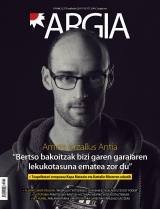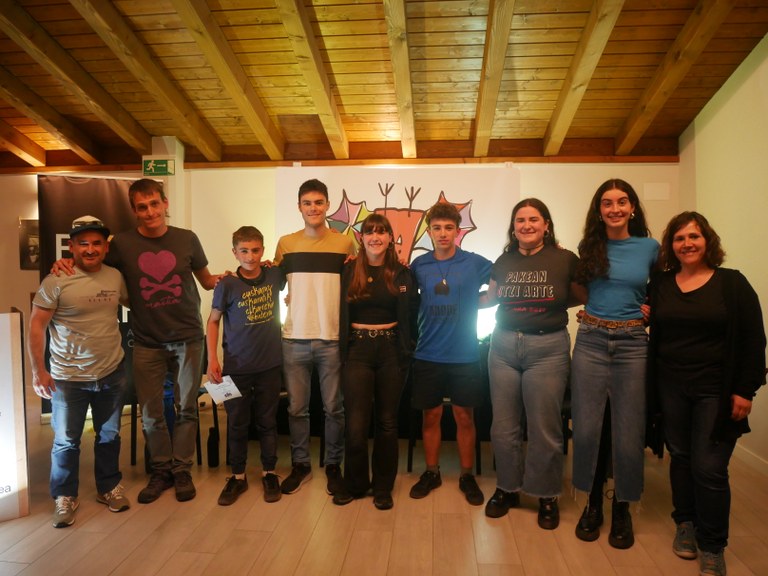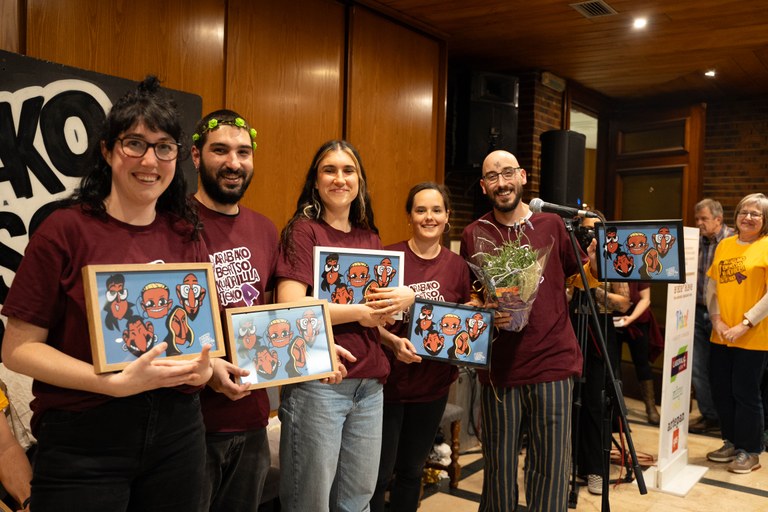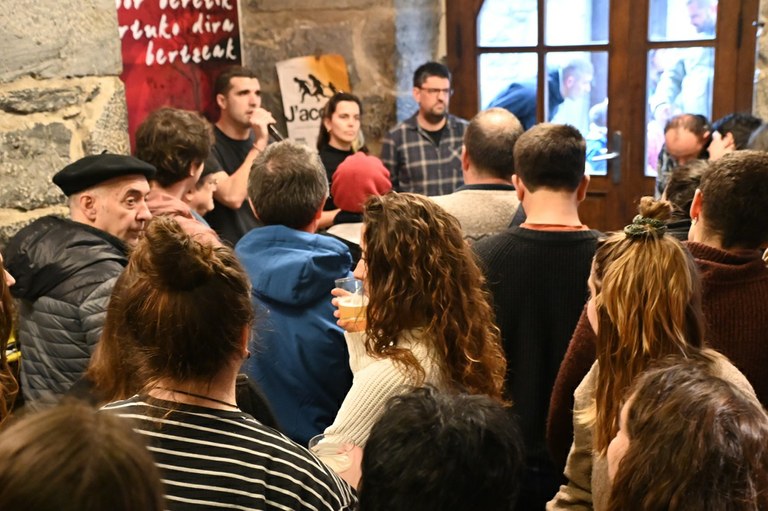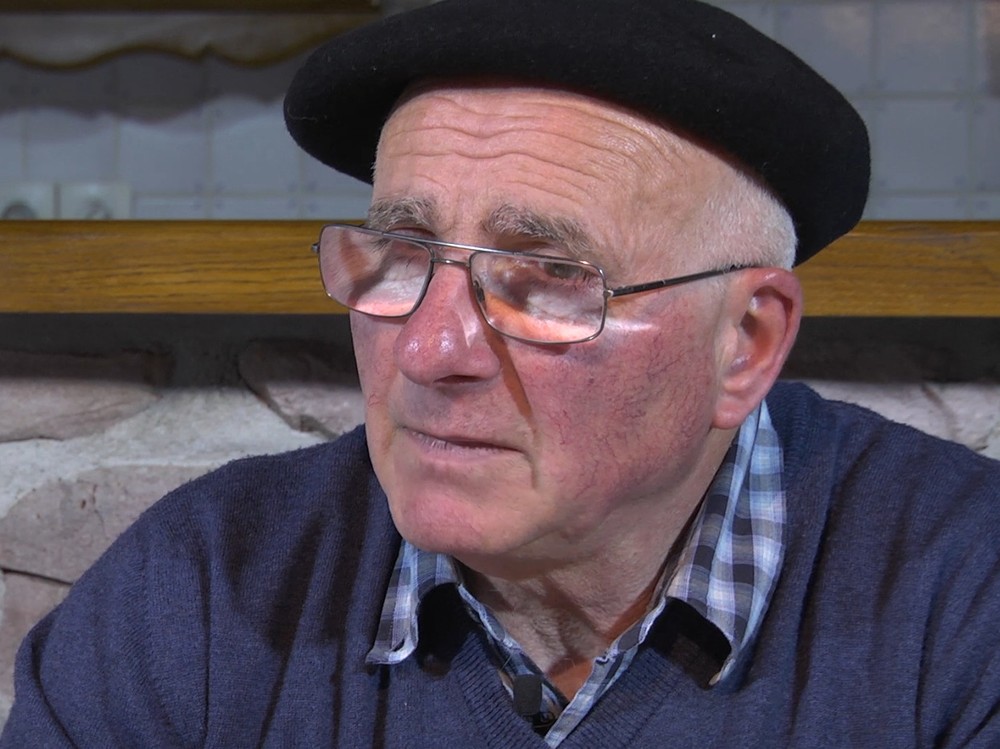"The surprise has been that there is not a single surprise to the end."
- On 17 December we will see at the BEC of Barakaldo who will be the Euskal Herria champion of the next four years. Today, AMETS Arzallus has proclaimed champion of the Bertsolaris Championship. The bilbaíno was dressed the first at the age of 30 and Sunday will return to the second, the first at 30. In the three finals he sang in the BEC he has stepped his peak: in 2005 Andoni Egaña was made with the third txapela in the year in which his last txapela was stained alone with Unai Iturriaga and in 2013 Arzallus rose with the txapela alone with Maialen Lujua. In the final it will be heard for the first time in this year’s championship, so one of the main unknowns of fans of bertsos who have closely followed the eliminators is: “How is Amets?”

In the final straight of the championship, how do you find yourself?
Well, I'm still active in bullring, normal. I hear it there and I try it a lot, but I also want to know how it is, because until the real time comes and I don't have all those anxieties and ways of squeezing the championship, you don't know too much how it's going to respond.
How have you lived the championship so far?
Pretty quiet, pretty close, I've gone to the sessions whenever I've been able, and then you get a little bit into that competition movement. I have also gone so far to training, that in the end I have become accustomed to this tension and have followed with a quiet point the last semi-finals.
The photo of BEC has been completed, and we can say it has been completed without major surprises and without major changes.
For me it was a bit of a surprise. In other words, all the finalists have come to the end and that is not so easy; I believe that the quarter-finals is a weight of tension and in semi-finals perhaps the other has the advantage of freshness, but it is not easy for no finalist to fall. I have seen them, speaking of the finalists, that they have defended themselves quite well in the semi-finals, not all the situations in the championship are easy, and I have seen my singing colleagues quite well.
We can say that they have been well prepared, but the champion, how is it prepared?
The truth is that I am quite lonely in my training and although in bertso-eskola we do a championship simulation, I am not very fond of practice, although it is good to contrast your solitary preparation.
In this case I have been preparing quite alone, focusing on domestic tasks, I have made my own reflections, my readings, I have written and I have done experiments in the form of the verse… I have done my small work and I have not met too much with those around me.
I remember four years ago, Aitor Mendiluze told you in the farewell: “The txapela goes to the hull that holds it.” How did that hull experience the weight of the cap?
I remember that, especially at the beginning, I tended to tighten a little and that gave me some shots after the tests. At first, our relationship was a bit conflicting, and I think I've needed time to adjust, to adapt and for me to take things a little quieter, and I would say that I've given a little peace to that shadow point of the txapela, and after four years, we've come here with a pretty good coexistence.
How did you see the championship? What odor, what temperature did you take this year's?
Turning to the debate on form and speech, I believe that in recent years there has been a formal and technically highly technical trend in posterity. So tecnificated, so many scaffolds around the bertso, that the back of the scaffolds was hard to see (exajeratantly). And I think it feels a little bit against, it takes the scaffolding a little bit and shows more what everyone can say inside or in relation to the issues, and that's an interesting line. Then everyone has their likes and motivations, and it goes on.
We often talk about “new generations,” but what do we talk about? What exactly is this new generation?
It may be the case of a generation that brings a different trend to Bertsolarism, I do not believe that this is the case in a hermetic way. In younger generations, for example, to refer to a topic that is currently in full force, there is a feminist discourse that has another visibility, a different space, it is seen that this concern is present and is transferred to themes, but I believe that this work of opening the way comes from the old generation.
It may be the most understandable way to define it, the generation that has so far passed to the end and the one that so far has not passed to the end. Because, if not, I would say that the plaza is given over, that this new generation goes with others before.
Do you want Amets Arzallus to BEC? What do you want to leave us and tell us?
Yes, I am eager, with my own reflections and my own elaborations, and wanting to explain it a little. Then, the championship is a very limited field, it's not easy for me one day to explain to you a general X-ray of your thoughts, and sometimes you also get what you don't want to say, and from there you can get an X-ray. In my case, I believe that people already know me a lot – at least the closest amateur – and they will not find another person. If so, I would like to go further, to maintain the old Bertsolarism adapted to the present time: to the political, social, cultural and general contexts. I think every verse should bear witness to the time we live in, and I want to do a little bit of thinking about the issues that have given me my concern for this moment in which we live and what to think about me. If a vertex makes someone think of a drop, the day is justified.
Maiatzaren 8an hasiko da Bizkaiko Bertsolari Txapelketako sailkapen fasea. Zortzi saio bikoitz jokatuko dira maiatzeko eguenetan. Sarrerak eskuragai daude bertsosarrerak.eus atarian.
Asteburu honetan hasiko da Gaztetxeak Bertsotan egitasmo berria, Itsasun, eta zazpi kanporaketa izango ditu Euskal Herriko ondorengo hauetan: Hernanin, Mutrikun, Altsasun, Bilboko 7katun eta Gasteizen. Iragartzeko dago oraindik finala. Sariketa berezia izango da: 24 gaztez... [+]
Vagina Shadow(iko)
Group: The Mud Flowers.
The actors: Araitz Katarain, Janire Arrizabalaga and Izaro Bilbao.
Directed by: by Iraitz Lizarraga.
When: February 2nd.
In which: In the Usurbil Fire Room.









